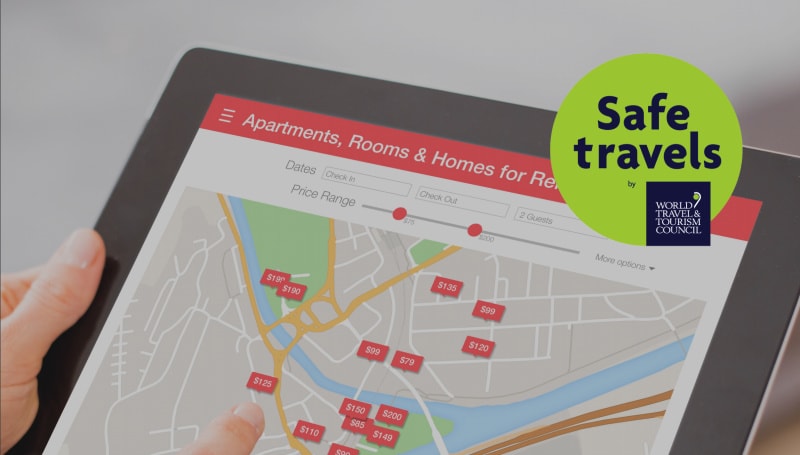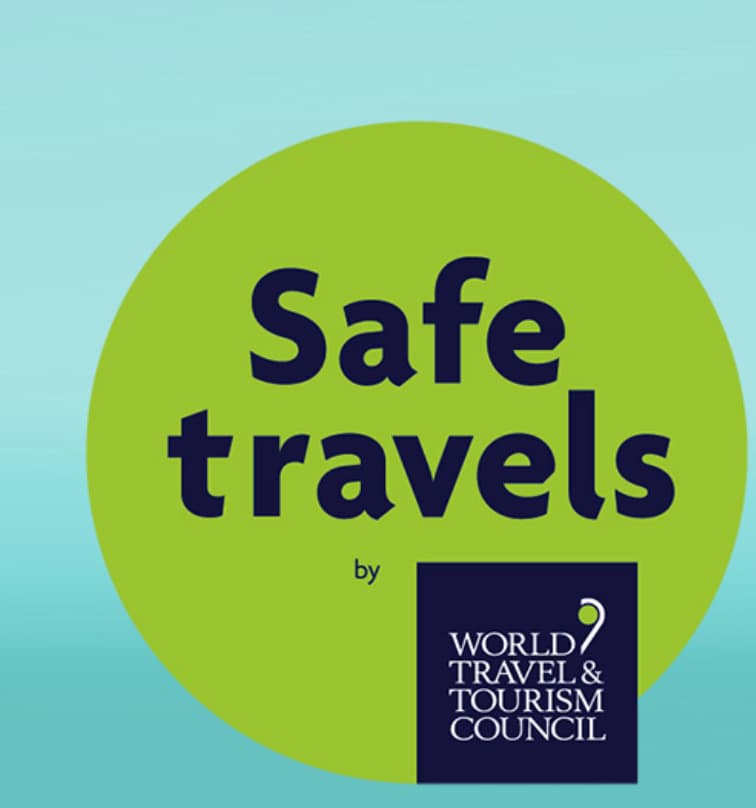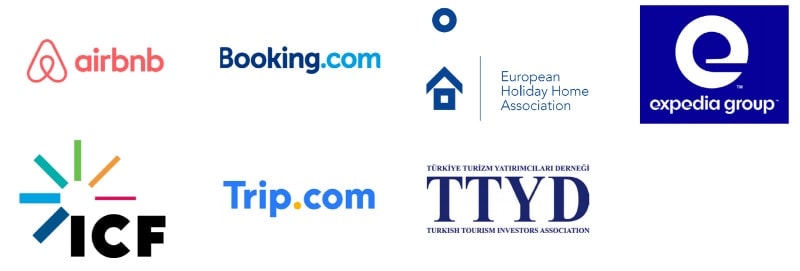This is no small feat: Getting arch-rivals Airbnb, Booking, Expedia, Trip to agree to have a common stance on something. It is what the World Travel & Tourism Council (WTTC) has just accomplished with its #Safetravels measures to enable short-term rentals to begin welcoming guests. WTTC, which represents the global Travel & Tourism private sector, held detailed discussions with key stakeholders and organizations such as the European Holiday Home Association to ensure maximum buy-in, alignment, and practical implementation.
Brian Chesky, Airbnb co-founder and CEO, said: “The desire to travel is deeply rooted in humanity. The industry will rebound and is critical to supporting the social and economic recovery of communities. Airbnb welcomes the WTTC’s work to create health and safety protocols that protect communities and support governmental efforts to reopen economies.”
Why create common Protocols for Short-term Rentals?

The proposed Short-Term Rental protocols were designed for owners and operators. The goal of these protocols is to avoid the emergence of multiple standards, which would only confuse the consumer and delay the sector’s recovery.
They also provide consistency to destinations and countries as well as guidance to travel providers, airlines, airports, operators, and travelers, about the new approach to health and hygiene in the post-COVID-19 world.
As a matter of fact, most short-term rental platforms had published their own cleaning guidelines:
- Airbnb’s 5-step protocol, Education & Online Quiz to get the Cleaning Highlight
- Vrbo and HomeAway Launch Cleaning Checklist Enhanced
- Booking.com rolls out Healthy, Safety, and Cleaning guidelines
Objectives
- Have the sector lead the definition of industry best practices as Travel & Tourism moves from crisis management to recovery.
- Put the safety, health, and security of travelers and the Travel & Tourism workforce at the core of the development of global protocols.
Approach
- Ensure coherence through a coordinated, collaborative, and transparent approach, supported by medical evidence, within the Travel & Tourism sector as well as with governments and public health authorities.
- Share harmonized and consistent protocols which are outcome-driven, simple, and practical across destinations and countries.
- Rebuild trust and confidence with travelers through effective communication & marketing; letting them know the protocols implemented and assurances available to keep them safe.
- Advocate for the implementation of enabling policies to support the recovery and demand regeneration for the sector.
Main guidelines of the WTTC COVID-19 Cleaning Protocols

- Use of contactless technology to enable automation at check-in and payment where possible,
- Minimize physical interaction when providing guests with keys, ideally in a contactless manner by offering self- check-in and check-out, where possible,
- Enhance sanitation, disinfection, and deep cleaning practices as well as increasing their cleaning/disinfection frequency with a focus on high-frequency touchpoints, including bedrooms, common areas, washrooms, and kitchens, including cutlery and utensil sanitization,
- Provide guests with physical distancing etiquette, including in elevators if relevant, through signage,
- Make available hand sanitizer to guests at the entrance of the short-term rentals.
detailed Cleaning Protocols of WTTC’s #Safetravels campaign

The protocols can be downloaded here. Here’s the text version:
1. OPERATIONAL AND STAFF PREPAREDNESS
As Short-Term Rental businesses or Short-Term Rental Operators restart their operations, they should optimise operational quality and delivery. There is also a key role to play in educating and engaging with the community of Short-Term Rental Operators to prepare and execute on the operational plans. Moreover, many Short-Term Rentals may not have dedicated employees/staff or may outsource to professional cleaning service providers though it is important to prioritise safety consistent with the guidance below:
- Short-Term Rentals Operators may achieve operational readiness for reopening by having:
- Leveraged a COVID-19 prevention plan including an action/checklist for infection prevention and a special cleaning and disinfection plan
- Implemented protocols and guidelines for staff safety and health, including health checks for short-term rental staff if required by local legislation
- Communicated a stay-home policy for staff displaying any symptoms or an increased temperature as per public health authority and/or World Health Organisation (WHO) guidelines
- Identified and have awareness of cleanliness and disinfection best practices which have been validated by experts, health authorities and governmental institutions
- Integrated technologies to enable automation such as contactless touchpoints, check-in and payment where possible. If contactless payment is not possible, consider using gloves and hand sanitation
- Short-Term Rental Operators should educate their staff to prepare and execute on operational plans having:
- Developed easy-to-follow guidelines for Short-Term Rental Operators to follow relating health and hygiene
- Provided their staff with the tools and information necessary regarding infection control, physical contact, appropriate attire, and enhanced hygiene measures, the use of masks and gloves as recommended by local health authorities
- All education should be informed by the latest advice from experts, public health authorities and/or WHO
- Reviewed employee sick leave policies and updated as needed on the basis of national legislation
2. DELIVERING A SAFE EXPERIENCE
As Short-Term Rentals operators work to deliver a safe experience for their guests through enhanced cleanliness and hygiene best practices, they should have:
- Adopted processes focused on enhanced sanitation, disinfection, and deep cleaning practices as well as increase their cleaning/disinfection frequency:
- Selected disinfecting products recommended by health authorities
- Provided revisited guidance to the cleaning team with a specific focus on high-frequency touchpoints within the property, including bedrooms, common areas, washrooms, and kitchens, including cutlery and utensil sanitization, where applicable. Enhance the cleaning frequency as appropriate.
- Removed extraneous items such as vases and artifacts
- Considered providing guests with the ability to opt-out of accommodation cleaning service during their stay.
- Provided guests with recommended physical distancing etiquette, including in elevators, if relevant, through signage
- Recommended that approved disinfecting products made available at sanitation stations to guests in the form of alcohol-based or hypochlorous acid water hand sanitizer at the entrance of the short-term rental
- Encouraged routine and proper handwashing, providing paper towels if possible
- Encouraged use of personal protective items such as disposable gloves, aprons, gowns or facial coverings for staff
- Implemented guest processes relating to information sharing and physical distancing:
- Direct guests, in advance of arrival, to pre-arrival health self-declaration where required
- Limited physical interaction when providing guests with keys, ideally in a contactless manner by offering self-check-in and check-out. Employ online or contactless payment if possible
3. REBUILDING TRUST & CONFIDENCE
As Short-Term Rental platforms and their operators work to enhance trust and confidence through transparency and communication with their community and guests, operators should:
- Provide clear, consistent, and up-to-date communication to guests on new health & hygiene protocols via the organization’s channels, digitally both prior to booking and onsite. Implement clear signage or electronic notice to inform guests of the enhanced cleaning protocols, avoiding physical contact, and recommendations
- Share community/guest guidelines ahead of the trip if possible and where applicable in person upon arrival at a short-term rental on the basis of advice from health authorities, which may include the wearing of face masks, hand washing hygiene, and physical distancing
- Inform guests about the support available if questions or concerns arise. Operators should be educated and prepared to answer questions and share protocols before and during the stay to reassure guests as well as any specific local regulations which may impact a guest’s stay, redirecting the guest to local resources. Communicate to guests the operator’s responsibility but also the guests’ own responsibility
4. IMPLEMENTING ENABLING POLICIES
travel and ensure the financial health of all lodging including short-term rental operators. Whether that is single property operators and hosts through to small and large property management businesses, the whole industry has a part to play:
- Working collaboratively as new rules for cross-border travel are developed
- Implementing consistent, outcome-driven, simple, proportionate, and practical protocols across the variety of business models within the Short-Term Rentals industry across countries and regions to facilitate adoption and ensure the Short-Term Rentals industry can continue contributing to inclusive and sustainable economic growth
- Providing financial relief to the sector through the reduction of taxes, fees and charges to stimulate demand
- Creating incentives and provide direct support to boost stay in short-term rentals as well as offering tax incentives
- Enhancing destination promotion to boost demand both domestically and internationally








